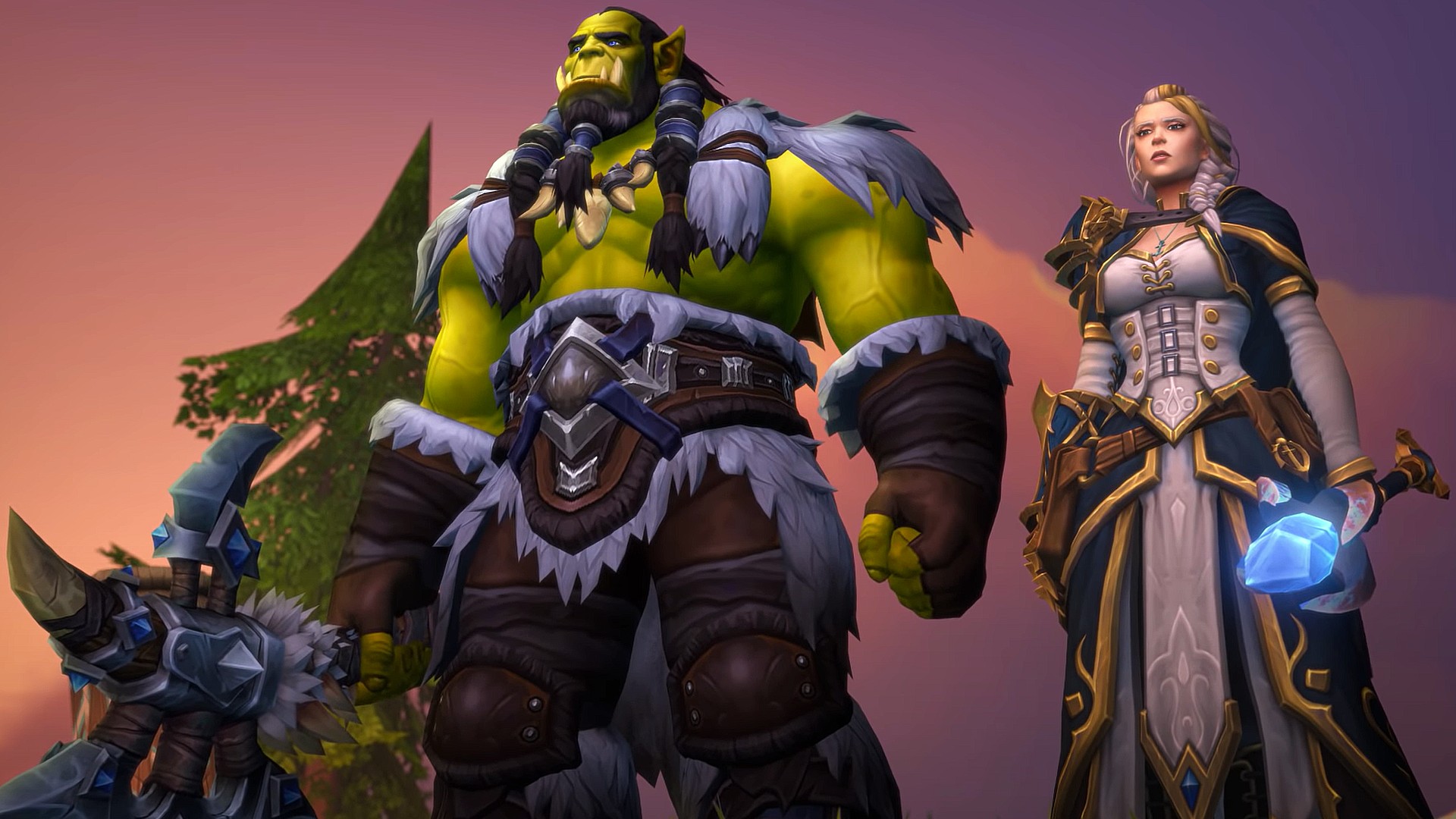The merger between Microsoft and Call of Duty, Diablo 4, and World of Warcraft company Activision Blizzard has been “prevented” by the UK’s Competition and Markets Authority, which cites concerns regarding consumer choice, market competition, and the availability of Activision Blizzard games on Microsoft’s Game Pass service. Despite proposed remedies from Microsoft, the UK authority says the company’s solutions contained “significant shortcomings” with regards to protecting the gaming market, with specific issues arising in relation to the control of the Call of Duty, Diablo, and WoW series.
The CMA had previously invited Microsoft to offer a variety of proposed initiatives or ‘remedies’ that would demonstrate how the company planned to uphold competition and consumer choice if its $69 billion acquisition of Activision Blizzard were completed. The CMA says that Microsoft’s proposals failed to address its concerns, resulting in its decision to prevent the merger.
“The final decision to prevent the deal comes after Microsoft’s proposed solution failed to effectively address the concerns in the cloud gaming sector, outlined in the Competition and Markets Authority’s provisional findings published in February,” the CMA says. “The CMA launched an in-depth review of the deal in September 2022, and in February 2023 provisionally found that the merger could make Microsoft even stronger in cloud gaming, stifling competition in this growing market.”
The CMA cites concerns specifically relating to cloud gaming, arguing that allowing Microsoft to take such a “strong position” in the cloud gaming space would “risk undermining the innovation that is crucial to the development of these opportunities.”
Concerns were also presented regarding Microsoft gaining “control” over Activision Blizzard games including Call of Duty, World of Warcraft, and Overwatch, with the CMA saying that, without the merger, there is evidence that Activision Blizzard would provide these games via cloud platforms in the future.

“Microsoft already accounts for an estimated 60-70% of global cloud gaming services and has other important strengths in cloud gaming from owning Xbox, the leading PC operating system (Windows), and a global cloud computing infrastructure (Azure and Xbox Cloud Gaming),” the CMA explains.
“The deal would reinforce Microsoft’s advantage in the market by giving it control over important gaming content such as Call of Duty, Overwatch, and World of Warcraft. The evidence available to the CMA indicates that, absent the merger, Activision would start providing games via cloud platforms in the foreseeable future.”
The CMA also considered the “potential benefits of the merger,” specifically focused on the possibility of allowing Activision Blizzard games to feature on Microsoft’s subscription-based Game Pass service, but found that these advantages “would not outweigh” the potential harm to consumers.

“The CMA carefully considered whether the benefit of having Activision’s content available on Game Pass outweighed the harm that the merger would cause to competition in cloud gaming in the UK,” the Authority says.
“The CMA found that this new payment option, while beneficial to some customers, would not outweigh the overall harm to competition (and, ultimately, UK gamers) arising from this merger, particularly given the incentive for Microsoft to increase the cost of a Game Pass subscription post-merger to reflect the addition of Activision’s valuable games.”
Martin Coleman, who chaired an independent panel of experts advising the CMA’s investigation, says the proposed merger would “undermine” competitors.
“Microsoft already enjoys a powerful position and head start over other competitors in cloud gaming and this deal would strengthen that advantage giving it the ability to undermine new and innovative competitors,” Coleman says. “Microsoft engaged constructively with us to try to address these issues and we are grateful for that, but their proposals were not effective to remedy our concerns and would have replaced competition with ineffective regulation in a new and dynamic market.”

Microsoft has issued a reply to the CMA’s decision, with its vice president Brad Smith saying it will appeal.
“We remain fully committed to this acquistion and will appeal,” Smith says. “The CMA’s decision rejects a pragmatic path to address competition concerns and discourages technology innovation and investment in the United Kingdom. We have already signed contracts to make Activision Blizzard’s popular games available on 150 million more devices, and we remain committed to reinforcing these agreements through regulatory remedies.
“We’re especially disappointed that after lengthy deliberations, this decision appears to reflect a flawed understanding of this market and the way the relevant cloud technology actually works.”
Activision Blizzard CEO Bobby Kotick has issued a statement responding to the CMA’s decision, saying it is not the “final word.”
“This isn’t the news we wanted,” Kotick says, “but it is far from the final word on this deal. Alongside Microsoft, we can and will contest this decision, and we’ve already begun to work to appeal to the UK Competition Appeals Tribunal. We’re confident in our case because the facts are on our side: this deal is good for competition.”
Microsoft has a variety of first-party games arriving in 2023 including vampire FPS Redfall and Bethesda’s new RPG game Starfield. Activision Blizzard, meanwhile, will shortly launch Diablo 4, with plans also rumoured for a direct follow-up to 2022’s Call of Duty Modern Warfare 2.
The proposed merger between the two companies is still being investigated by the United States Federal Trade Commission (FTC) which has also cited concerns regarding consumer choice and competition. The FTC said in December that it is seeking to block the deal, but has not yet made a final decision.
As we await further news on the Microsoft Activision Blizzard merger, you may want to take a look at some of the upcoming games set to arrive in 2023. You can also try some of the best FPS games and best multiplayer games available right now.
